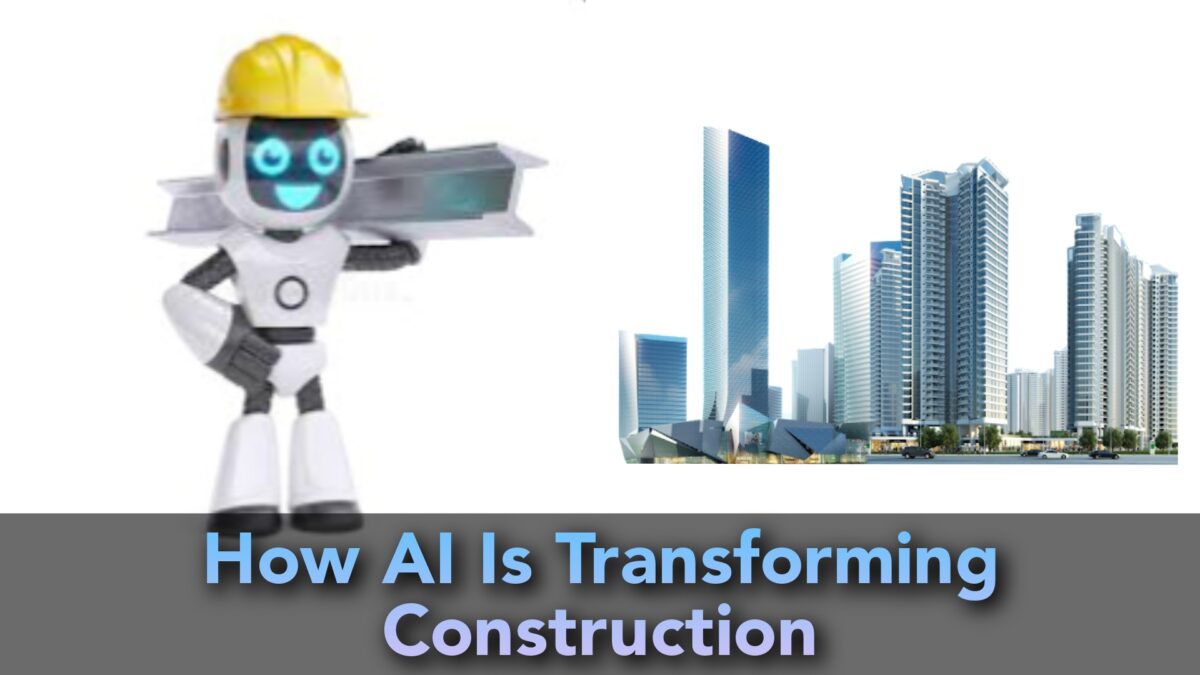Artificial Intelligence have a huge scope in construction industry. AI is replacing traditional procedure of construction project management.

Artificial intelligence (AI) is indeed transforming the construction industry by revolutionizing various aspects of the construction process.
Here are some key areas where AI is making a significant impact:
Table of Contents
1. Design and Planning:
AI enables architects and engineers to create more efficient and optimized designs.
By analyzing vast amounts of data, including building codes, regulations, and historical project data, AI algorithms can generate design options, optimize layouts, and propose cost-effective solutions.
This streamlines the design process, reduces errors, and enhances overall project efficiency.
2. Project Management:
AI-powered project management systems can improve scheduling, resource allocation, and risk management.
These systems can analyze project data, predict potential delays or bottlenecks, and optimize resource allocation to minimize downtime and increase productivity.
AI algorithms can also identify patterns in project data to provide insights and recommendations for decision-making.
3. Safety Monitoring:
AI technologies, such as computer vision and sensors, can monitor construction sites in real-time to identify potential safety hazards.
These systems can detect safety violations, unauthorized personnel, and potential accidents, allowing for immediate intervention.
By improving safety practices and reducing accidents, AI helps protect workers and reduces project delays and costs.
4. Quality Control:
AI can enhance quality control processes by analyzing sensor data and images to identify defects and anomalies.
Machine learning algorithms can learn from historical data to detect patterns of quality issues and provide real-time feedback to workers.
This helps identify problems early on, improve construction quality, and reduce rework.
5. Robotics and Automation:
AI-powered robots and automation systems are increasingly used in construction. Robots can perform repetitive and physically demanding tasks such as bricklaying, concrete pouring, and welding, reducing labor-intensive work and improving efficiency.
AI algorithms enable robots to adapt to changing environments, optimize movements, and collaborate with human workers effectively.
6. Predictive Maintenance:
AI can optimize equipment maintenance by analyzing sensor data from machinery and predicting maintenance needs. By monitoring machine performance in real-time, AI algorithms can identify signs of wear, potential failures, or maintenance requirements.
This proactive approach helps prevent costly breakdowns, reduces downtime, and extends the lifespan of equipment.
7. Energy Efficiency:
AI algorithms can analyze building data, including energy consumption patterns, weather conditions, and occupant behavior, to optimize energy usage in buildings.
AI-powered systems can control lighting, heating, ventilation, and air conditioning (HVAC) systems dynamically to reduce energy waste and improve energy efficiency.
My Thought
AI is transforming the construction industry by improving design efficiency, project management, safety, quality control, automation, maintenance, and sustainability.
These advancements lead to cost savings, reduced project timelines, improved safety, and enhanced productivity in construction projects.
